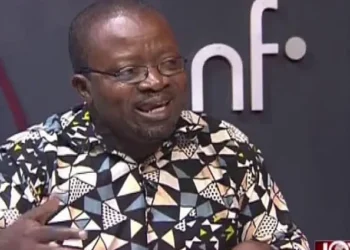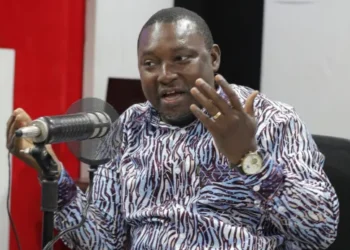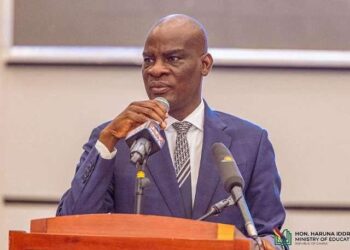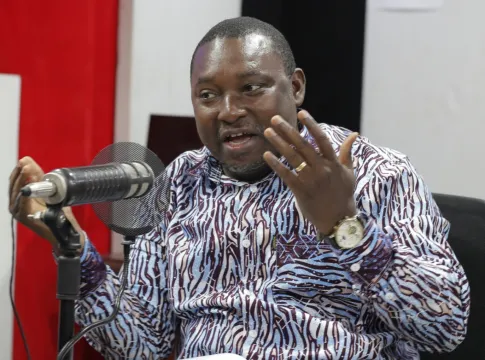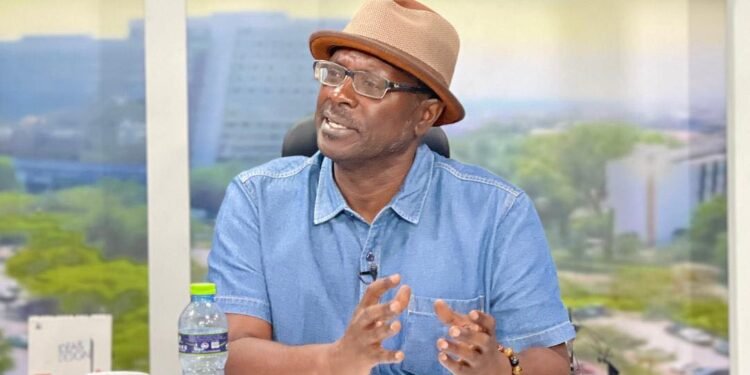Dr. Vida Obese, a Specialist Physician at the Okomfo Anokye Teaching Hospital has called on the government to include Parkinson’s disease in the NHIS. According to her, the inclusion of the disease in the National Health Insurance Scheme (NHIS) will help reduce the burden on patients.
Speaking on an Accra-based TV station on Sunday afternoon, Dr. Obese indicated that even though the disease has been around for a long time, it has not received much attention. She noted that the disease is very prevalent among elderly people especially those above 60 years. Nevertheless, she cited instances where people below age 30 have shown symptoms of the disorder.
“It is common among people aged 60 years and above. They are normally exposed to hypertension and they have to buy drugs for Parkinson’s as well. They are not able to work, so the families are affected economically”.
Meanwhile, her comments came as part of awareness creation as the world marks the ‘World Parkinson’s Disease Day’ today. Every year, the month of April is observed as ‘Parkinson’s Awareness Month’. As such, the World set aside April 11 each year to mark the ‘World Parkinson’s Disease Day to raise awareness about this degenerative brain disorder.
Also, she noted that people with Parkinson’s disorder suffer a lot of stigmatization because people do not understand the disease.
“It is a disease that you don’t have control over your actions or your emotions. They struggle a lot. They don’t have access to lab medication and those that are available are also too expensive for them”.
When quizzed as to whether the disease is covered by the National Health Insurance Scheme. Dr. Obese responded in the negative nothing that they are now pushing for the disease to be included in the scheme.
Symptoms of the Parkinson disease
She educated the public on some of the symptoms of the disease, emphasizing that young people may also get it.
“Parkinson’s disease is common among people above the age of 60 years. But, we have patients under 29, 30, 40 who are coming to the hospitals with symptoms of the disease. So, if you realize that your handwriting has become smaller. You are becoming slower in activities that you regularly do, or difficulty getting out of bed. You have an elderly person at home who shuffles or moving and one arm refuses to swing, that’s a symptom of Parkinson’s. Tremor is very predominant. So if you have any tremor in your hands or your body, you have to have it checked”.
Meanwhile, the symptoms of the Parkinson disease are very much related to stroke. Therefore, to avoid any doubt, she advised that people who exhibit any signs of the disease seek medical attention. According to her, there is a disorder called parkinsonism which is very much related to Parkinson’s disease. She explained that “it’s not Parkinson” because “the management is different”.
Moreover, she indicated that her foundation, ‘The Anidasuo Parkinson Disease Foundation’ started three years ago. The aim, according to her, is to advocate for patients to access drugs. It also researches Parkinson’s disease especially in Ghana to determine why Ghanaians get Parkinson’s as opposed to other countries.
She added that the foundation also engages in public education to create awareness of the disease in the country. Dr. Obese also appealed to the general public to support the foundation to drive the agenda on helping people with Parkinson’s disease.

Parkinson’s disease
World Parkinson’s Disease Day marks the birthday of Dr. J Parkinson. He first described the disease in “An Essay on the Shaking Palsy”. Parkinson’s disease is a brain disorder that leads to shaking, stiffness, and difficulty with walking, balance, and coordination. Parkinson’s symptoms usually begin gradually and get worse over time. As the disease progresses, people may have difficulty walking and talking.
Moreover, there is a tendency to bend the body forwards and to involuntarily switch from walking to a running pace, while the sense and intellect deteriorate. Although the majority of PD patients are over the age of 60 years, it may also affect people in their 30s or even 20s.
World Health Organization identifies Parkinson disease as one of the most common neurologic disorders. It afflicts approximately 1% of persons older than 60 years. About 10 million people worldwide are living with the disease.
READ ASLO: China considers mixing COVID vaccines to increase effectiveness




